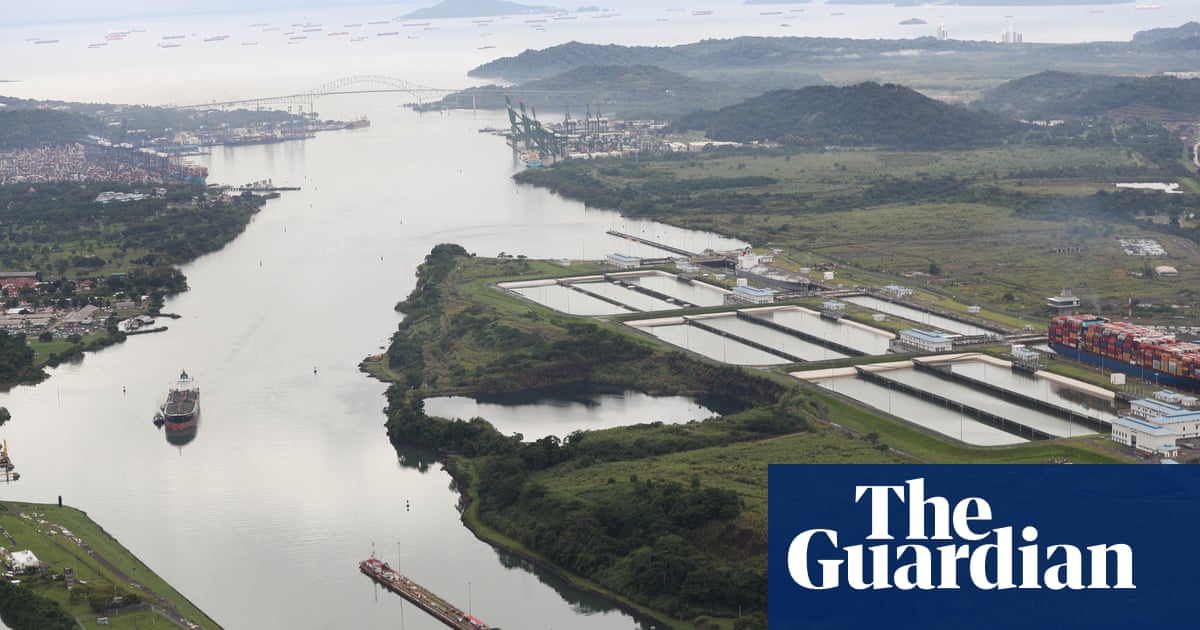
On Monday morning, we walked into the main hall of Labour’s annual conference in Liverpool, before the keynote speech of the chancellor, Rachel Reeves. What we did next, you might have seen.
Shortly after Reeves began her address, two of us stood to speak out on Labour’s complicity in suspected Israeli war crimes, and the party’s ties to climate-wrecking corporations. We were there on behalf of Climate Resistance, a group campaigning to end the cosy relationship between politics and the fossil fuel industry. Just like arms manufacturers, oil companies have been guilty of hindering democratic processes with donations and lobbying, putting human lives on the line for their own profits.
Faced with the assault on Gaza and Lebanon, and the deadly impacts of climate breakdown all over the world, we needed to end the silence. We needed to remind Labour that, until it breaks its ties with these organisations and takes meaningful action, there is no time to celebrate.
The booing of our action was anticipated, the manhandling was not. We were removed, arrested and questioned in a police van for an hour, before being driven from the venue and dropped 10 minutes down the road. The landlord of the pub opposite remarked that he wasn’t sure how to feel about the police choosing this spot for dropping detainees after arrest.
I was slammed into a wall, the handcuffs made marks and there was unexpected verbal abuse. But it’s important that our rough treatment isn’t the main story to come out of Monday’s disruption.
Though we couldn’t hear it at the time, Reeves replied: “This is a changed Labour party. A Labour party that represents working people, not a party of protest.” To say this is to deny the rich history of protest behind the freedoms we take for granted, and the tradition that once gave birth to the Labour party.
The roots of the labour movement go back to a time when the 40-hour working week was a pipe dream, unions were banned and women had no vote. As much as the Labour leadership would like to forget this, they are standing on the shoulders of striking workers and trade unionists. From workers’ rights to the end of apartheid, change was never won by sitting and clapping along.
On one point, however, Reeves was right. This is a changed Labour party. Today, it is in power and instead of keeping working people as its priority, it is ready to sell its allegiance to the highest bidder.
Walking through the conference, it is not hard to see who pays best. Drax, whose power station is the UK’s single largest carbon emitter, features among the sponsors of conference events, alongside the gas company Cadent. This is telling in light of Labour’s decision to uphold dozens of oil and gas licences issued by the Tories, including the controversial Rosebank oil field, and to not act decisively to end the billions of pounds of public money being given to Drax in subsidies.
Reeves herself accepted a £10,000 donation from Lord Donoughue, the former chair of a prominent climate-denying thinktank, shortly before she ditched the party’s commitment to spending £28bn a year on green investment.
New research by the Campaign Against Arms Trade demonstrates a similarly cosy relationship between the arms industry and the government, with BAE Systems enjoying more ministerial meetings than any other private company between 2012-23. Meanwhile, the government continues to tiptoe around the need for an immediate arms embargo, despite the continuing investigation by the international criminal court into suspected war crimes and crimes against humanity by Israeli leaders, and despite the request of arrest warrants for Israel’s prime minister, Benjamin Netanyahu, and his defence minister, Yoav Gallant.
The Foreign Office recently made headlines cancelling 30 arms licences for Israel, but 90% of the licences still remain in place and British-made components facilitate the bombing of refugee camps in Gaza. In the face of 40,000 civilian casualties, the bombing of schools and hospitals and the looming threat of mass starvation, flashy headlines are not enough.
If this is the change we voted for, it looks remarkably like complacency and complicity.
Jack McGinn is a climate activist with Climate Resistance
Do you have an opinion on the issues raised in this article? If you would like to submit a response of up to 300 words by email to be considered for publication in our letters section, please click here.
This article was amended on 25 September 2024 to clarify that it is the company Drax rather than its power station which is sponsoring some events at the Labour conference and also that Drax is not sponsoring the conference itself. Also, there are not “British-made bombs” falling on refugee camps in Gaza, but instead components made in the UK which are facilitating the bombing.












